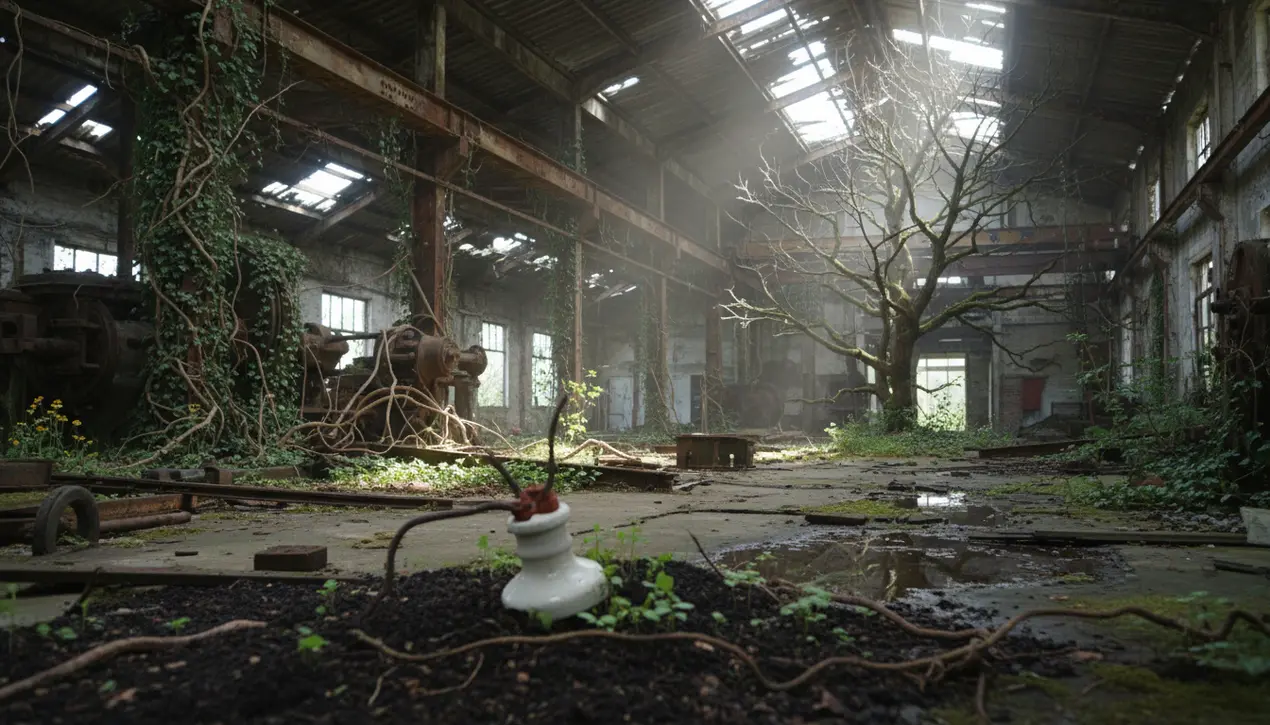
SciencearchaeologyCultural Heritage
Idle Things
RA
Rachel Adams
4 hours ago7 min read
The quiet, persistent work of ruination is perhaps the most profound ecological process on our planet, a relentless deconstruction that is as creative as it is destructive. In the abandoned industrial sites where rust creeps over steel like a slow-moving lichen, and in the forest clearings where saplings patiently dismantle the stone foundations of a forgotten homestead, we witness nature's most fundamental strategy: the cyclical return to elemental beginnings.This is not mere decay, but a complex, layered transformation—a symphony of microbial activity, weathering, and reclamation that has been the Earth's method for eons, long before human industry ever briefly interrupted the rhythm. The science behind this process is both intricate and humbling; consider how a single drop of water, by freezing and expanding within a microscopic fissure in concrete, can exert pressures exceeding those of any human-made machine, tirelessly working to reduce our most imposing structures to gravel and dust.This is a lesson in entropy and resilience, where the collapse of one form gives life to countless others, from the fungi that digest lignin to the insects that turn fallen timber into fertile soil. From the silent, moss-draped ruins of Chernobyl, where a radioactive exclusion zone has become an unexpected sanctuary for wildlife, to the ghost nets of the Great Pacific Garbage Patch, which are themselves being colonized by new microbial communities in a stark example of adaptive evolution, ruination forces us to confront the temporary nature of our own constructs against the vast, patient timeline of geological and biological forces.The emotional weight of this observation is inescapable; it speaks to a deep-seated human anxiety about our own impermanence, yet also offers a strange comfort in the knowledge that the systems of the Earth possess an innate, self-healing capacity that operates on a scale far beyond our own brief tenancy. As a biologist, I see in every crumbling wall and every overgrown path not a failure, but a testament to life's stubborn insistence, a preview of the world's eventual, inevitable rewilding.The data is clear: ecosystems, when given the chance, begin the process of recovery almost immediately, with pioneer species laying the groundwork for complex food webs to re-establish themselves, often in ways we could never have predicted. This is not a passive end but an active beginning, a reminder that in the grand narrative of our planet, our chapters are short, and the story of life itself is one of continuous, beautiful, and necessary ruination and rebirth.
#ruination
#decay
#notes
#philosophy
#featured
#urban exploration
#aesthetics
#memory
Stay Informed. Act Smarter.
Get weekly highlights, major headlines, and expert insights — then put your knowledge to work in our live prediction markets.
Comments
Loading comments...
© 2025 Outpoll Service LTD. All rights reserved.